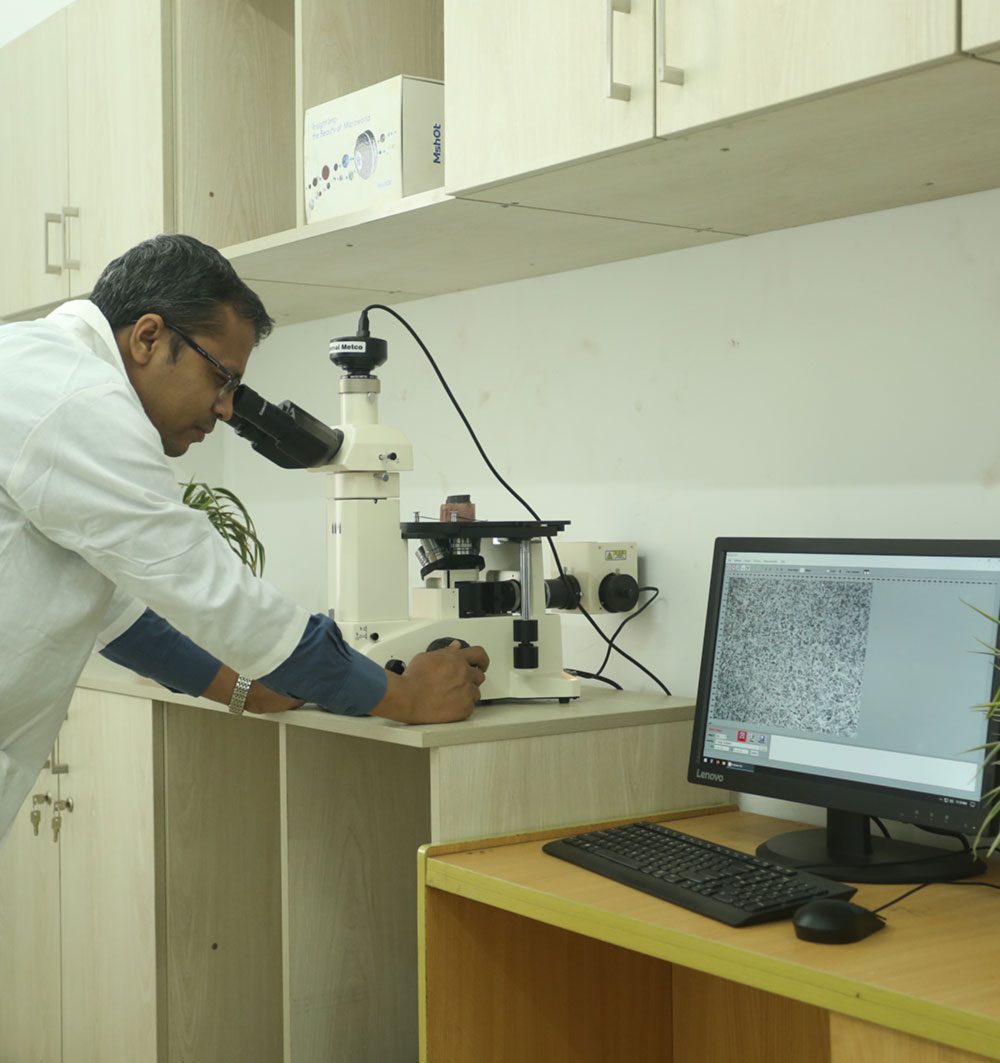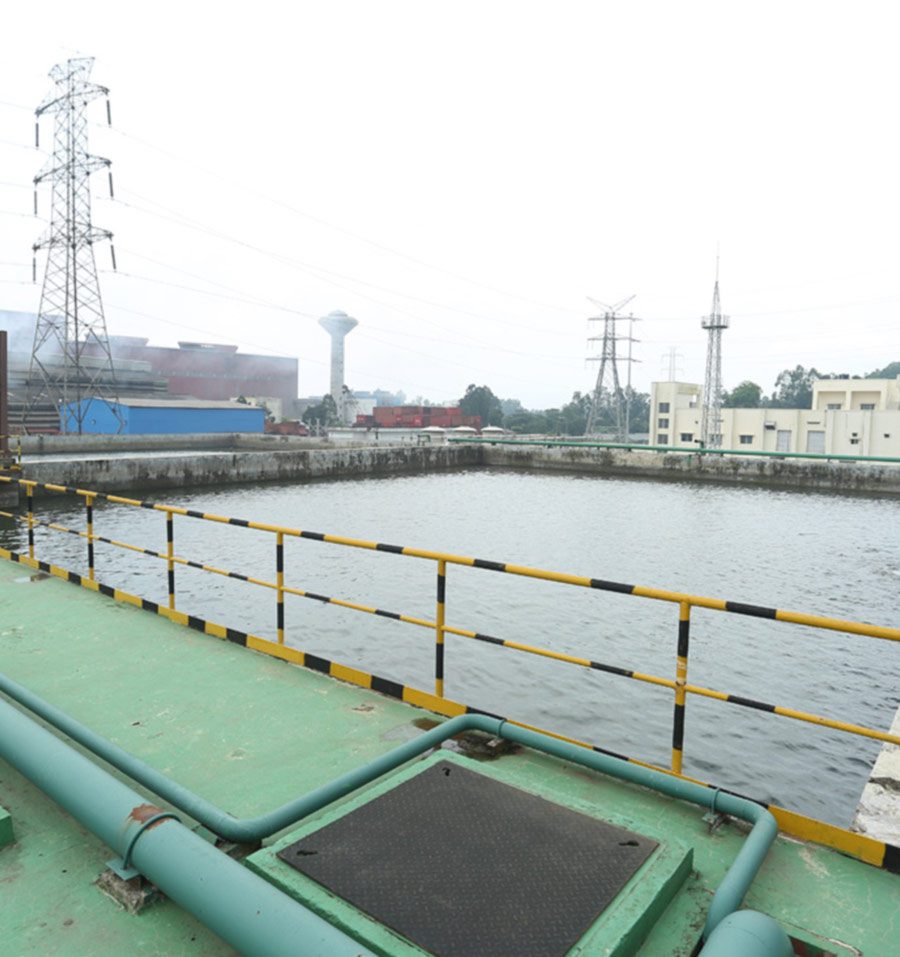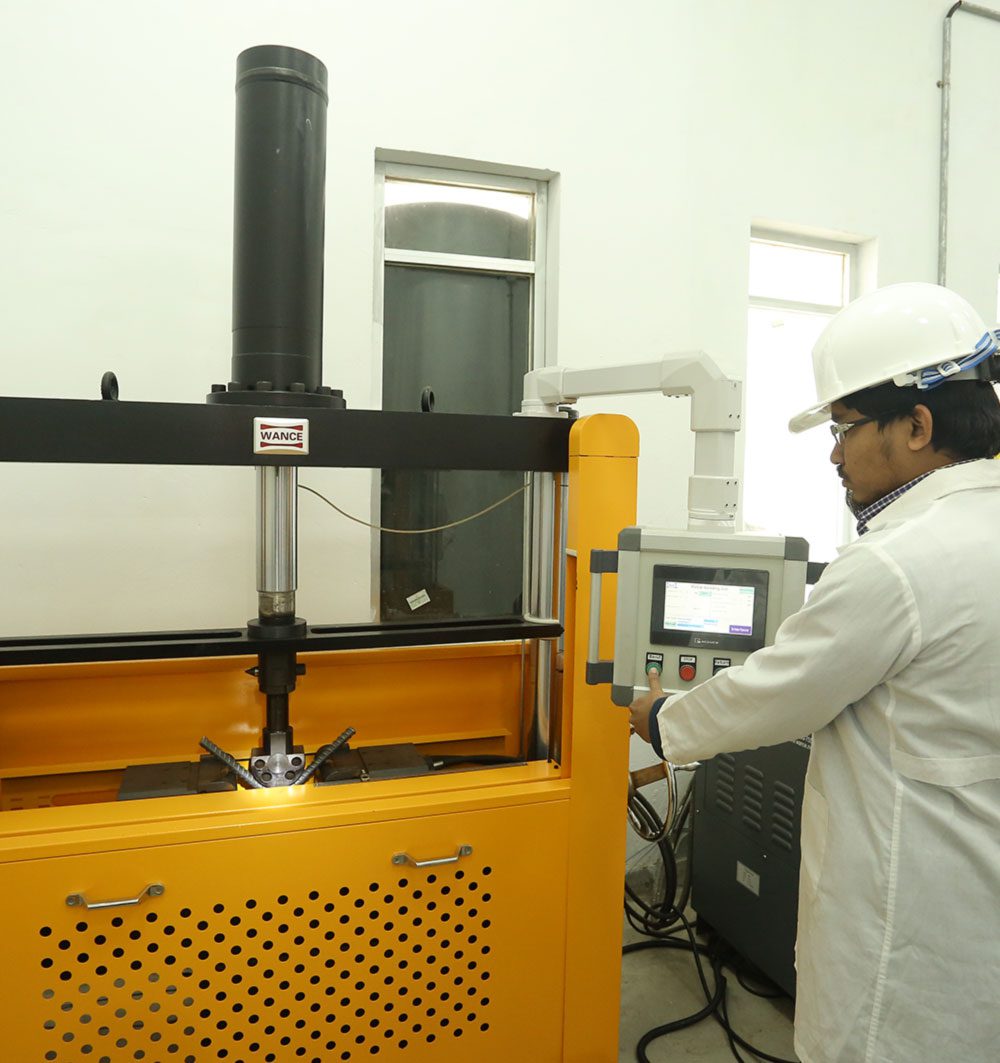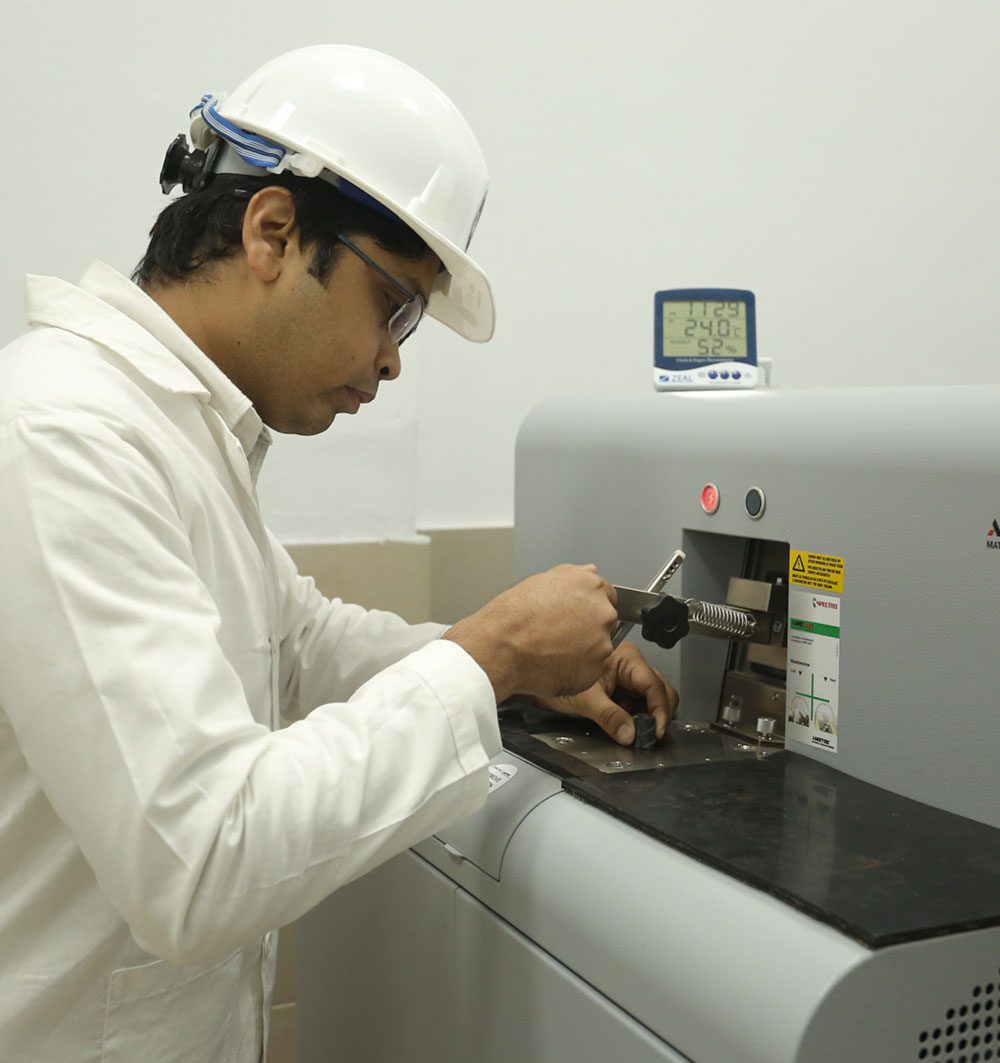As the demand for sustainability in construction materials increases, the steel industry needs to outdo mere recyclability of products and set new trends in the field of sustainable construction and ecological innovation.
In recognition of this need, GPH Ispat Limited aims to develop products that provide its customers with eco-efficiency gains along with increased profitability. Our consideration of ecological progressiveness and business development drives us forward to our overall goal of increased production sustainability. We develop value-added products, working alongside our customers to meet their needs and anticipate future trends. Our Research & Development department, focuses its efforts on the development of high-strength rebar tailored for markets, in which we have successfully developed cutting-edge solutions. This adds value in a number of different ways: it strengthens our business potential for market access and sales, it bolsters our contributions to the Bangladeshi economy, and it provides our construction clients with more environmentally friendly and profitable solutions.

New product development
GPH Ispat Limited has focused its recent efforts on the development of a new high-strength rebar with yield strength ≥ 600Mpa. In the past, GPH Ispat Limited has produced rebar of 40 grade, 60 grade, B420DWR, B500CWR and B500DWR complying with BDS ISO 6935-2, BS 4449 and ASTM A 615, ASTM A 706 specifications. Eager for innovation and improvement, however, and in acknowledgment of the benefits...
Learn More
Waste Management
A comprehensive procedure has been developed for identification, segregation, collection and disposal of waste generated within our operations. Most of our waste products are non-hazardous. For example, EAF slags, EAF dust, mills scale are notable waste products. We currently sell them to external customers. R&D team of GPH has studied and implemented various options to reuse / recycle the production waste. In this direction, GPH has...
Learn More
Process Development
Process development is integral to GPH Ispat’ s continued economic success and pursuit of sustainable steel.
GPH Ispat Limited continuously carries out improvements and modifications to site equipment and processes. These improvements and modifications continually enhance the working environment by enhancing safety for operators and reducing dust emissions and other impacts on the environment.
Learn More
Product and Quality Improvement
GPH Ispat Limited strives to provide its customers with the best steel products that meet and exceed international standards. The use of stringent quality-control system qualifies GPH Ispat for several international management systems such as ISO 9001, ISO 14001, ISO 45001 and product certifications like product conformity certifications for rebar conforming to different international standards such as BS 4449:2005, ASTM A706 and BDS ISO 6935-2: 2021 The...
Learn More